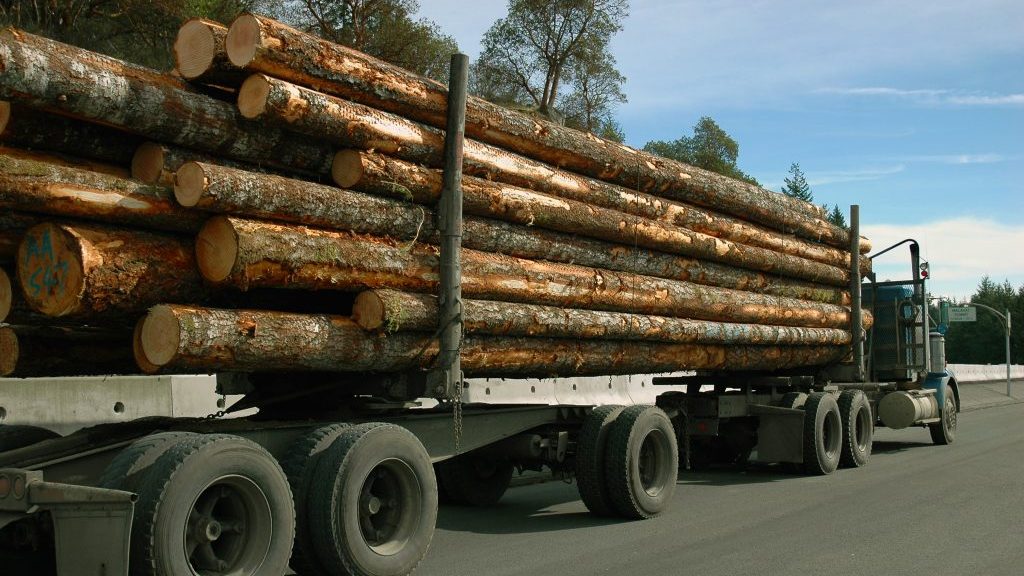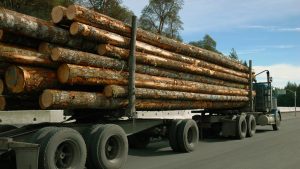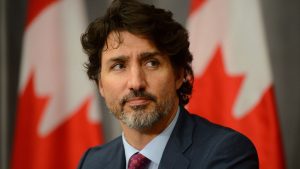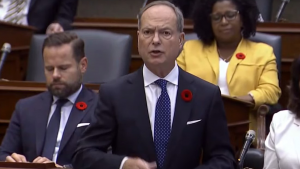VICTORIA — A 25-per-cent U.S. tariff on Canadian goods would be “devastating” for the province’s lumber and forestry industries, British Columbia Premier David Eby said Wednesday ahead of a meeting with fellow premiers and the prime minister.
Eby was scheduled to participate in the virtual meeting to discuss U.S. president-elect Donald Trump’s threat to impose the tariffs unless Canada and Mexico stop illegal border crossings and prevent illicit drugs from entering the United States.
Eby said the lumber and forestry sectors are already strained by a recent increase in duties amid the ongoing U.S.-Canada dispute over softwood lumber.
The tariffs are “unjustified,” and they would hurt Americans as much as they would Canadians, Eby said after the first meeting of his new cabinet in Victoria.
“It’s going to result in more-expensive wood for building homes and building things in the United States. (It) doesn’t make any sense,” he said.
B.C. is a source of natural gas, wood products, minerals and other products that U.S. businesses depend on, Eby said, and the tariff would hinder jobs and opportunities in the province while making “life more expensive for Americans.”
The premier said he believes B.C. has a strong case to make for the tariff being “badly placed” if Trump’s priority is to reduce costs for Americans. The tariffs would be paid by U.S. importers of Canadian products, potentially driving down demand.
Eby and officials in Ottawa have called for a united front dealing with Trump’s tariff plan, which the president-elect announced on social media on Monday.
Eby said B.C. officials had repeatedly raised concerns with Ottawa over organized crime and illicit drugs, such as fentanyl, in relation to border security.
“It’s a priority for us. It has been for a while, we’ve written to Ottawa about it.”
But Eby said it “doesn’t justify the tariffs.”
The premier said Trump’s tariff plan “doesn’t make economic sense,” and it’s not necessary to address the serious issues at the border.
Alberta Premier Danielle Smith and Quebec Premier François Legault have both said Trump’s concerns about the border are legitimate and need to be addressed.
Legault said Wednesday that Ottawa shouldn’t try to deny that there’s a problem and instead present a plan to reassure Trump that Canada’s border is secure.
Eby said he believes the premiers are “unified” when it comes to the tariff threat.
“There are 13 of us plus the prime minister. It’s a big group of people with different political perspectives, but on this issue of ensuring that we’re protecting the people in our country from these unjustified tariffs, I believe we’re completely in line on that question.”
Eby said he planned to meet with business and labour groups in B.C. following the call to discuss the strategy to protect B.C. jobs and families.
The premier also said B.C. has to “redouble” its efforts to diversity its trading partners and recalled a trade mission to the Asia Pacific region in 2023.
“In Korea, in Japan, Singapore, these are really important relationships for British Columbia, and they will provide some buffer for us in moments like this.”
Eby said B.C. is not in the same position as Quebec or Ontario in terms of the potential impact of the tariff, but the province is still exposed.
“These unjustified tariffs do threaten the prosperity and security of many families in our province. So I’m going to make sure that we’re advocating strongly at the team Canada level to respond to this, (as a) unified front across Canada.”
Eby also told reporters the first day of the next legislative session will be Feb. 18.
The NDP government would deliver a budget that reflects B.C. residents’ priorities around affordability, health care, economic growth and public safety, he said.
©2024 The Canadian Press











Recent Comments